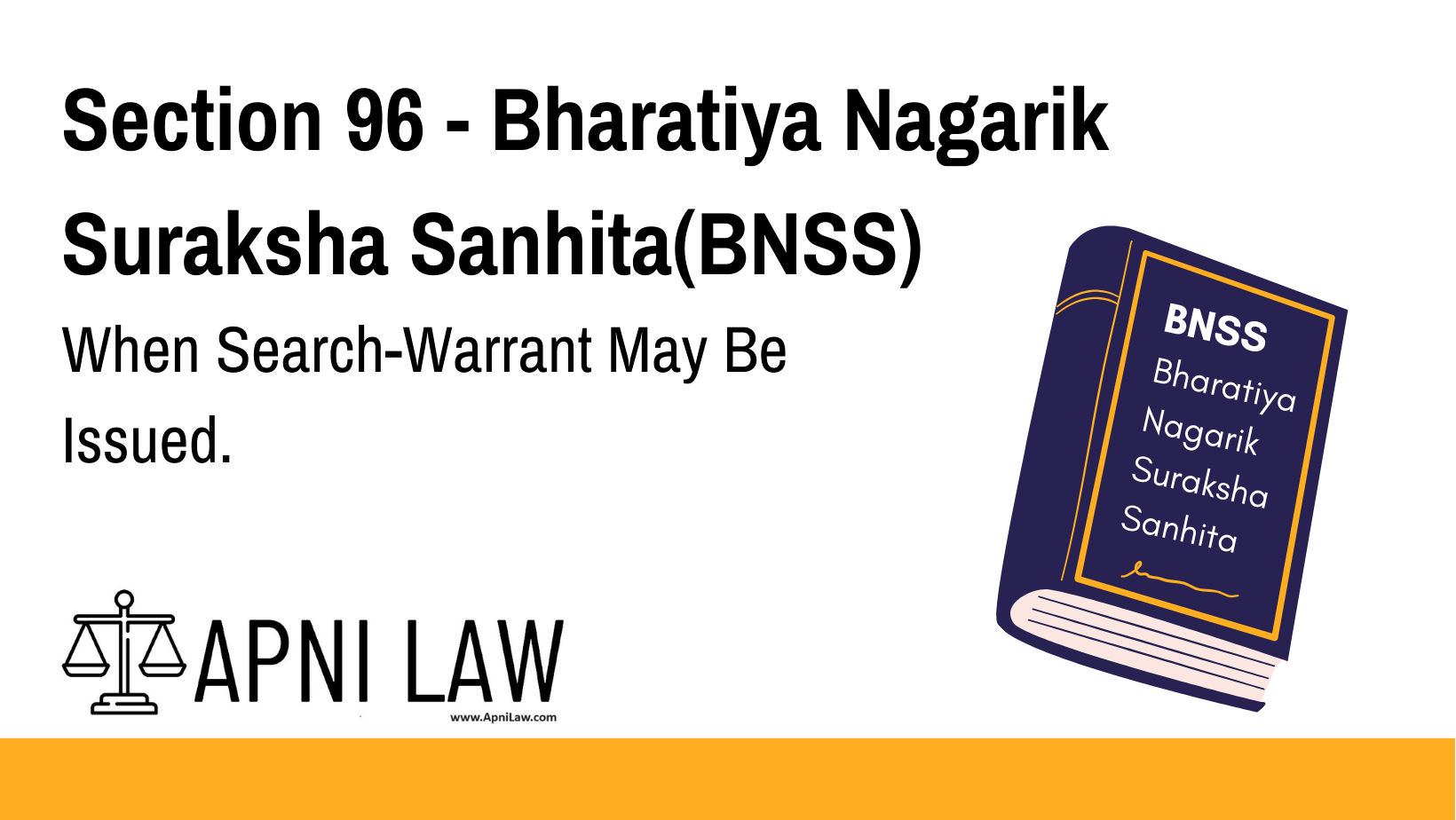Code: Section 96 BNSS
(1) Where—
(a) any Court has reason to believe that a person to whom a summons order
under section 94 or a requisition under sub-section (1) of section 95 has been, or
might be, addressed, will not or would not produce the document or thing as required
by such summons or requisition; or
(b) such document or thing is not known to the Court to be in the possession of
any person; or
(c) the Court considers that the purposes of any inquiry, trial or other proceeding
under this Sanhita will be served by a general search or inspection,
it may issue a search-warrant; and the person to whom such warrant is directed, may search
or inspect in accordance therewith and the provisions hereinafter contained.
(2) The Court may, if it thinks fit, specify in the warrant the particular place or part
thereof to which only the search or inspection shall extend; and the person charged with
the execution of such warrant shall then search or inspect only the place or part so specified.
(3) Nothing contained in this section shall authorise any Magistrate other than a
District Magistrate or Chief Judicial Magistrate to grant a warrant to search for a document,
parcel or other thing in the custody of the postal authority.
Explanation of Section 96 BNSS
Objective:
Section 96 BNSS empowers courts to issue search warrants when a document, parcel, or thing
is required for a criminal investigation or trial but:
- The person summoned refuses or is unlikely to comply.
- The document’s location is unknown.
- A general search is needed to aid the legal process.
Key Provisions:
-
When Can a Search Warrant Be Issued?
- If a person is expected not to comply with a summons (under Section 94) or a requisition (Section 95).
- If the document or object is not in any known person’s possession.
- If a general search or inspection is needed for an inquiry or trial.
-
Who Can Issue the Search Warrant?
- Any Court can issue a search warrant under general conditions.
- Only a District Magistrate or CJM can issue a search warrant for documents in postal custody.
-
Scope of the Search Warrant:
- The Court may limit the search to a specific place or part of a location.
- The search must be conducted as per the warrant’s instructions.
Illustration of Section 96 BNSS
Example 1: Search for Hidden Financial Documents
A person involved in financial fraud is summoned to produce bank statements under Section 94,
but the Court believes he will not comply. The Court issues a search warrant for his office and residence.
Example 2: Investigating a Drug Trafficking Case
A police officer suspects that illegal drugs are being stored in a warehouse. Since the exact owner is unknown,
the Court issues a general search warrant under Section 96(1)(b).
Example 3: Limiting the Scope of a Search Warrant
A search warrant is issued for a corporate office suspected of fraud, but the Court limits it to the accounts department only.
Common Questions and Answers on Section 96 BNSS
1. Can the police conduct a search without a warrant under this section?
- No, the police must obtain a warrant from the Court before conducting a search under Section 96 BNSS.
2. Can a Magistrate issue a search warrant for postal documents?
- No, only a District Magistrate (DM) or Chief Judicial Magistrate (CJM) can authorize a search in postal custody (Section 96(3)).
3. Can a search warrant be issued if the suspect refuses to comply with a summons?
- Yes, under Section 96(1)(a), a search warrant can be issued if a person is likely to ignore a summons under Section 94.
4. Can a search warrant be restricted to a specific area?
- Yes, under Section 96(2), the Court can limit the search to a specific place or section of a building.
5. What happens if a search warrant is issued for an incorrect address?
- If the address is incorrect, the search may be invalid, and a new warrant must be obtained with the correct details.
Conclusion
Section 96 BNSS ensures that courts can issue search warrants when documents or objects needed for an investigation
are withheld, unknown, or require a general search. The provision balances judicial authority with privacy protections,
allowing limited and lawful searches when necessary.
For expert legal advice, visit ApniLaw today! 🚀








